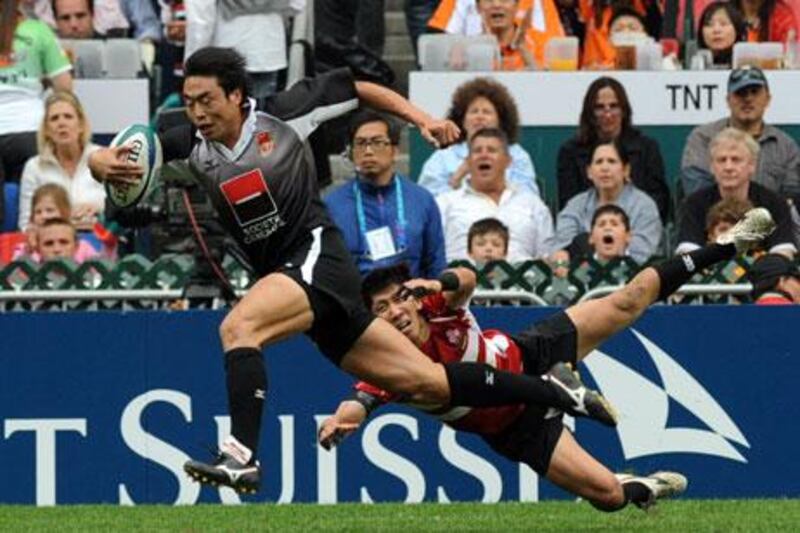When the International Olympic Committee accepted rugby back into its movement in 2009, it immediately provided a variety of nations, whose Olympic medal collection to date has been bare, with a new route to the podium.
Rugby sevens is one sport in which small nations, such as Fiji and Samoa, neither of whom has ever won an Olympic medal, can realistically target gold.
That is if the Olympics were to take place today. It is still five years until sevens makes its bow, at the 2016 Games in Rio de Janeiro, and nations previously regarded as rugby also-rans are closing the gap on the established powers.
The likes of Russia, the US and China may be rugby minnows, but they are Olympic behemoths.
Since the 2009 vote, rugby has made its way onto the school curriculum in Russia and China. Meanwhile, US Sevens will earn a slice of their country's Olympic funding pie for the first time when the next four-year cycle starts after the 2012 Games in London.
Even the International Rugby Board (IRB) say the prospect of China, who are ranked 63rd in the world for rugby, challenging for a sevens medal in Brazil would represent a triumph for them.
"Success for us would be having China in the medals in the Olympics, and having Russia and Brazil up there," Mark Egan, the IRB's head of development and performance, said.
Egan cited Kenya's march to the 2009 Rugby World Cup Sevens semi-final in Dubai as a marker of how nations with a minimal rugby pedigree can close the gap on the best in rugby's abridged version.
With the HSBC World Series set to expand from eight tournaments to 10, taking in extra events in Asia and South American, there are plenty who could be about to follow Kenya's lead, he said.
"We are already seeing an explosion in sevens in China," Egan said. "The challenge for us is to help their federation manage that growth, and make sure they put in competition programmes.
"We see countries, such as Portugal and Russia, doing well, and Spain have been getting much stronger over the past two years."
Rugby remains a relatively niche sport in football-dominated Brazil but Egan is sure the sevens event will fill the 26,000-capacity ground for its debut Olympic tournament. "We are very confident the sevens event at the Games will be very popular," he said.






